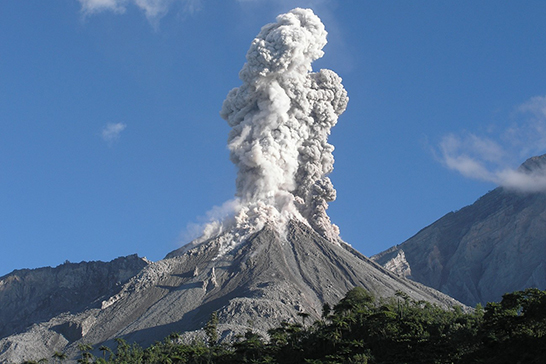
From the May 2016 Desktop News |The National Science Foundation selected Dr. Kimberly Genareau, an assistant professor in the Department of Geological Sciences, for a CAREER Award, which will support five years of volcanic lightning research with more than $430,000.
The multi-year award funds both basic research and the development of educational materials for children.
Genareau will lead experiments to observe the chemical changes that occur in volcanic ash when struck by lightning by performing a series of triggered lightning experiments on manufactured ash samples of known composition and grain size.
Textural and geochemical data acquired on the samples will provide evidence for volcanic lightning in the geologic record, allowing researchers to identify these events during eruptions that preceded or eluded human documentation. Results will also reveal the role that lightning plays in altering the chemical characteristics of the local environment.
“Volcanic eruptions and lightning strikes are two of the most impressive and destructive natural phenomena, but much is still unknown about the fundamental processes that allow these events to occur,” Genareau said. “An emerging line of research is seeking to determine the complex relationship between explosive volcanism and lightning, specifically the effect of lightning discharge on the textural and chemical properties of’ volcanic ash and the resulting signature of volcanic lightning occurrence in the geologic record.”
A research team of graduate, undergraduate, and high school students will perform the experiments and analyze the samples. The grant encompasses developing a curriculum for grade-school students on natural hazards to pique their interest in earth sciences.
Through scientific and community presentations, this project aims to build further interest in volcanology, atmospheric dynamics, and the complex interplay between these natural phenomena, not only in the scientific community, but also in schools and among the general public.
According to the NSF, the Faculty Early Career Development, or CAREER, Program “is a foundation-wide activity that offers the National Science Foundation’s most prestigious awards in support of junior faculty who exemplify the role of teacher-scholars through outstanding research, excellent education, and the integration of education and research within the context of the mission of their organizations. Such activities should build a firm foundation for a lifetime of leadership in integrating education and research.”